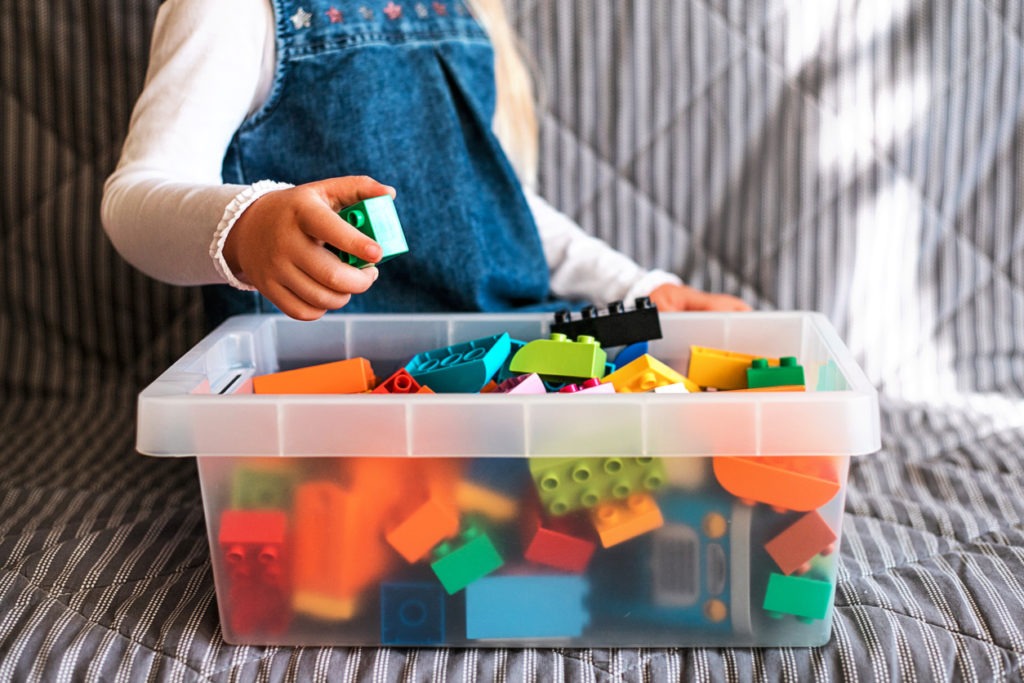As an adult, a homeowner, and a parent, you have responsibility on top of another responsibility. If it’s only possible, we want to avoid chores because they are time-consuming and tiring, and in the end, they won’t make us any money. But chores are an inevitable part of maintaining life around the house. We all need to do them for our benefit.
Whether you’re a stay-at-home parent or have your own career outside the home, keeping up with house chores could be an overwhelming challenge. It’s tough enough when you’re on your own or with a partner while both have a job but bringing kids into the mix is a whole new ball game.
Kids bring a sense of completion into many families and couples, along with loads of fun and laughter. However, their responsibility means you usually have more to do around the house. Leaving some dirty laundry for later or skipping the dishes might not be an option anymore because you will surely run out of time and opportunity to do them.
Fortunately, you can use several methods to stay on top of your house chores. You must teach your kids to do chores – not just so you can have free household help, but because they need to learn responsibility and gain essential life skills that will serve them well throughout their lives. Yes, kids need to be kids, and you don’t want to overwork them, but in the end, they gain something by doing hard work.
Here are a few tips you might want to adapt in your household to help you manage house chores more efficiently:
Train your kids to do age-appropriate chores
To make chores manageable for you, teach your kids some chores so they can help. Your child may be able to do more than you think. Think about it – if your child can master a complicated computer game, they can quickly run the dishwasher or washing machine.
Generally, toddlers and preschoolers can handle a couple of one or two-step jobs. Older children can handle more. Here are some age-appropriate chores you can give your children:
Toddlers (2-3 years old)
Two years of age is not too early to teach them something to do. While they are babies, they can’t do anything to help themselves, but as they near two years of age, they have already achieved many developmental milestones that enable them to understand and follow simple instructions and even do it right. Here’s what you can ask them to do:
- Pick up toys and books and put them back in storage
- Put dirty clothes in the hamper
- Put placemats on the dinner table
- Wipe up little spills
- Pile magazines and books
- Fill pet’s food dish (This may not be appropriate if your toddler still likes putting things in their mouths)
Preschoolers (4-5 years)
Preschool children can be given simple chores like picking up after themselves. At this age, they must be able to pick up their toys and keep them away when not in use. They can also start learning how to put dishes away and pick up their room.
For preschoolers, they can do any of the above chores, plus these things:
- Make their bed
- Clear table
- Bring in mail or newspapers
- Fix their bowl of cereal
- Unload utensils from the dishwasher
- Wash plastic dishes (and dirty toys) in the sink
- Help with grocery shopping and putting away groceries
- Help in preparing meals under adult supervision
School-age children (6-9)
Once kids start attending school, their responsibilities with chores must also increase. They must continue picking up after themselves, like putting their shoes and bags away when they get home from school. For instance, if your kid is expected to put his own clothes away, teach him where to put them and discuss your expectations. However, don’t expect it to be perfect. Here’s what you can ask your school-age children to do:
- Feed pets
- Water the plants
- Take out the trash
- Help with folding or hanging out newly washed clothing
- Help with meal preparation under supervision
- Help make and pack lunch
- Sweep or vacuum floors
- Sort laundry
- Set and clear the table before and after meals
- Weed and rake leaves
- Mop floors
- Wipe down tables and countertops
- Keep bedroom tidy
Tweens (10-12)
Tweens can start learning to take on more kinds of chores, leaving the easier ones for their younger siblings. Paying them an extra allowance for doing extra chores is also a great way to start teaching them financial stability.
Your tweens must be able to do any of the above chores plus:
- Fold laundry
- Unload dishwasher
- Wash car
- Wash windows
- Change their bedsheets
- Cook simple meals with supervision
Teenagers (13-19)
Teenagers need to learn chores to prepare them for the real world. They can do the tasks they did when they were younger, but they are now responsible for doing them independently. They can also take on more difficult chores, such as:
- Do laundry
- Prepare meals
- Cook breakfast and some other dishes
- Clean bathroom and toilet
- Stack dishwasher
- Mow the lawn
- Washing dishes
Make a chore chart
Create a list of every job needed to maintain orderliness and keep a family going. Have the kids pick out the chores they would most like to do, then create a chart.
First, ensure that everyone gets an age-appropriate chore, then divide it into three columns. One is for the list of chores and who is assigned to do them, another is for deadlines, and the last is for a checkmark, sticker, or star once the chore is done. Put the chart where everyone can see it (the best place is the fridge door) and let everyone follow through on their assignments.
To make the chore chart more helpful, here are the following tips:
List specific instructions. Writing “clean your room” is vague. Instead, be explicit with whatever you want to be done. For example, you can list, “Remove dirty clothes on the floor, put toys in the toy box, declutter your study desk, change your sheets, etc.”
Ease into chores. Don’t just leave them to do the chores without guidance. First, do it while teaching them step by step, then the next time, let your child help you do it. Then, have your child do the chore as you supervise. Once your child knows how to do it, they are ready to do it on their own.
Go easy with deadlines and reminders. You want the chore to get done without you micromanaging it. You may want to use the “when/then” technique. For instance, you can say, “When your toys are put away, then you can play outside with your friends.”
Teach them to clean as they go
Parents need to make the most of their time, or they’ll never get done with chores. You don’t want to spend the whole weekend doing laundry or deep cleaning the whole house, so make it a habit to clean regularly and clean as you go.
For instance, you can teach your children to bring their plates to the sink or dishwasher after eating. Whoever spills or makes a mess should be the one responsible for cleaning it up. Tell them to sweep or vacuum their room. Once the laundry is done, give your kids the opportunity to fold and put away their clothes in their own closets. These are just some things you can do to keep your home clean and lessen your workload.
Encourage involvement
Involving your kids in house chores is necessary if you want to stay on top of things. However, you can make things much more fun to encourage your little ones in this direction. You don’t want to be a nagging parent all the time, so try using positive reinforcement instead. Many households have a rule that pocket money is to be earned by doing chores; you can have the same setup with your child.
Another option here is to hold small competitions regarding chores. The kid who can clear the table the fastest or who helps out the most might get a treat over the weekend or some extra cash.
Declutter regularly
Homes with kids tend to gather a lot of clutter. Broken toys, piles of old school papers, and the remnants of forgotten hobbies can make your space seem unmanageable. Instead of getting stressed out by all that debris, get everyone together at least once a month and declutter all the extra stuff.
Decluttering will help in keeping track of clothes, toys, and whatever else you have on hand. It will also make space for new stuff and give you an idea of what’s needed in the near future.
Do not overload your kids’ schedules
One reason many parents are tired and overwhelmed and kids cannot participate in house chores is that they are too busy. Kids are already busy at school by focusing only on academics, but if they have tons of after-school activities, additional classes, sporting events, and recitals, their schedules can get pretty loaded, too.
If you don’t have the time to manage your responsibilities, don’t force your kids to go to things they don’t even want to participate in. Don’t be pressured with what other parents can do or handle – it’s your house, your rules. Let your child focus on school and let them choose the extra-curricular activities they want to involve themselves. Let them have margin in their life so they can have the time to learn new life skills and help you out in the house.
Create to-do lists
Every homemaker needs to have a system of lists in place, as kids come with a ton of responsibilities. You should have one in an accessible place every single day, whether it’s on the fridge or on your phone. These lists will help you keep track of every chore and every kid, including their appointments, school events, and any other crucial activities.
As much as possible, leave the weekends free
Weekends should ideally be something that you look forward to. Resist the temptation to leave all the bulky chores for those days so that you can actually relax and enjoy time with your family. Give an hour each weekday for large jobs, such as changing bedding or cleaning rugs.
Conclusion
Dealing with home chores and kids at the same time can get exhausting, but a little organization and discipline can make it miles better. Get the other family members to pull their weight in order to get the house in top shape. This will prevent you from getting burned out or bogged down by numerous tasks every day.
Of course, there are days when everything seems overwhelming, no matter what. If you’re on the brink of despair, it might be time to call in a bit of professional help. Consider hiring some cleaners to take care of the heavy chores; the much-needed rest you get will be worth the investment!


